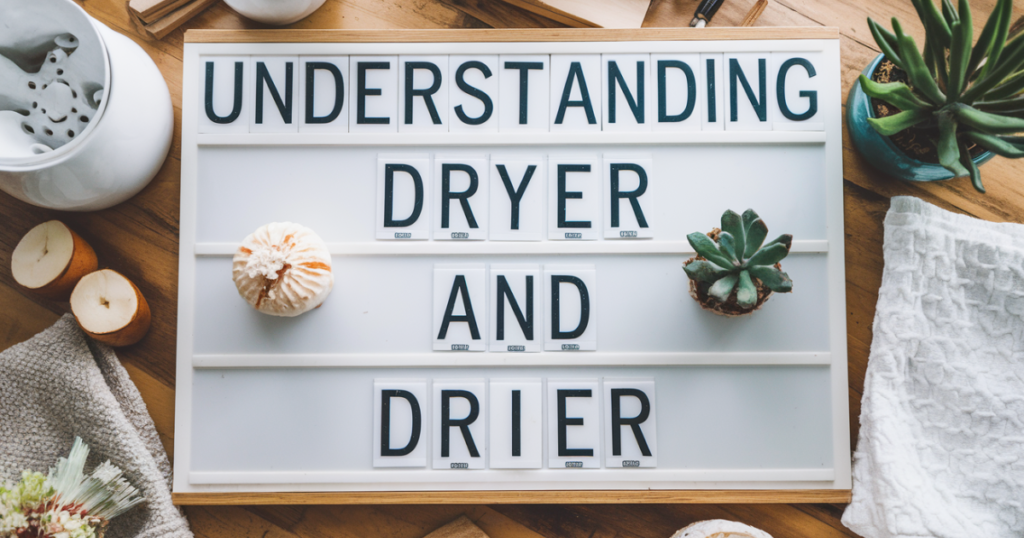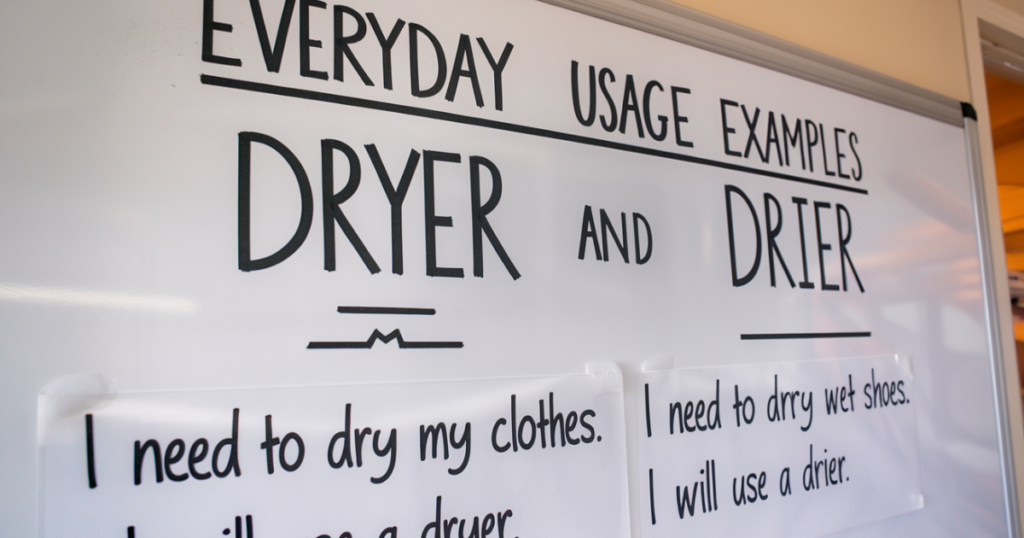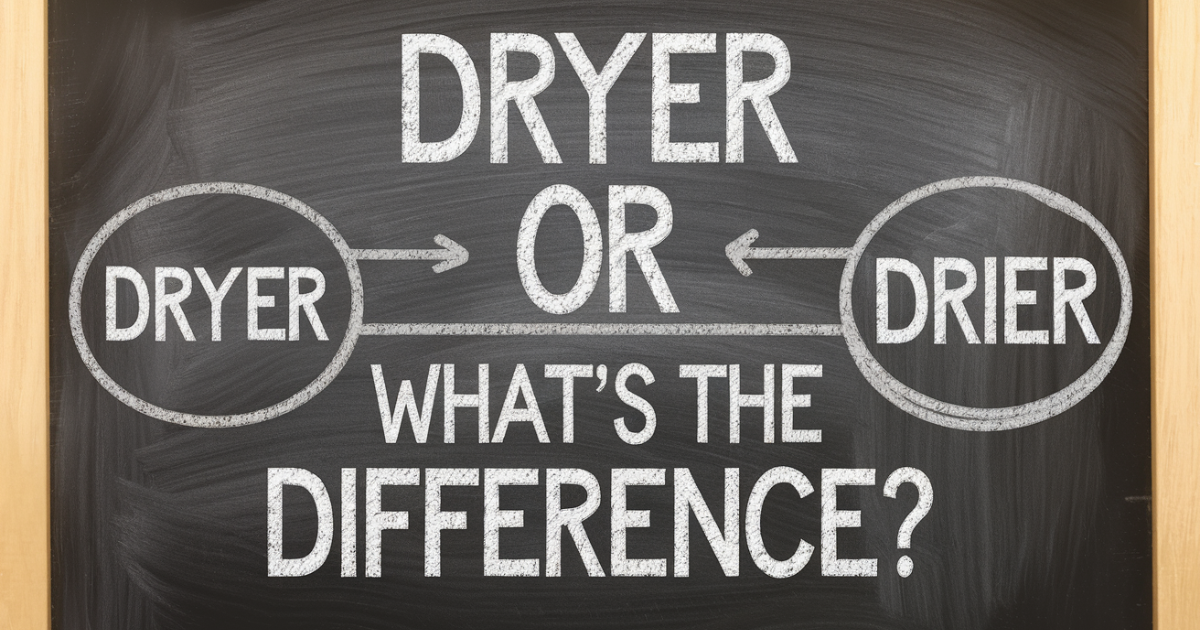When writing or speaking, words with similar spellings can often cause confusion. Dryer or drier are two such words that, despite their close resemblance, have distinct meanings. Understanding the difference between them is simple yet essential, especially when you want to convey the right idea in various contexts.
In short, dryer is a noun that typically refers to a machine used to dry things, like a clothes dryer or a hair dryer. Drier, on the other hand, is a comparative adjective, describing something with less moisture than something else. Knowing when to use each word correctly can help make your communication clearer and more precise.
Understanding Dryer And Drier

Dryer: Definition and Usage
A dryer is a noun that refers to a machine or device used for removing moisture. Commonly, it’s associated with appliances like clothes dryers or hair dryers that help dry items quickly.
Examples
- I put my wet clothes in the dryer to speed up the drying process.
- She used a hair dryer to style her hair after washing it.
You Also Like To Read This: Truely Or Truly: Which One Is Correct?
Drier: Definition and Usage
Drier is the comparative form of the adjective dry, used to describe something with less moisture than another. It’s typically used to compare the dryness of objects, environments, or conditions.
Examples
- The desert climate is much drier than the coastal areas.
- After an hour in the sun, her towel was drier than before.
Side-by-Side Comparison
To clarify the differences and help you choose the correct word, here’s a side-by-side comparison:
| Feature | Dryer | Drier |
| Part of Speech | Noun | Comparative Adjective |
| Definition | Refers to a machine or device used for drying | Describes something with less moisture than another |
| Key Difference | Refers to equipment or appliances that dry things | Indicates a comparison in moisture level |
| Common Usage | Describes appliances like clothes dryers or hair dryers | Used to compare dryness of objects or environments |
| Example | “I used the dryer to dry my clothes quickly.” | “The air here is much drier than at the beach.” |
| Pronunciation | Both are pronounced similarly: /ˈdraɪər/ | Both are pronounced similarly: /ˈdraɪər/ |
In short, dryer is a noun specifically used for machines that remove moisture, whereas drier is a comparative adjective indicating that something has less moisture than another. Knowing the difference helps avoid confusion and ensures precise language, particularly in writing or technical descriptions.
Everyday Usage Examples

Dryer
- After washing my clothes, I placed them in the dryer to speed up the drying process.
- The hair dryer was on high heat, making it easy to style my hair quickly.
- We need to replace the old dryer because it takes too long to dry our laundry.
- She prefers using a dryer instead of air-drying her clothes, especially during winter.
Drier
- This part of the country is drier than it was a decade ago due to climate changes.
- The bread became drier as it sat out on the counter for too long.
- My skin feels much drier in the winter months, so I need to use lotion regularly.
- The drier conditions in the desert make it challenging for plants to survive.
FAQs
Which is correct, drier or dryer?
Both words are correct but serve different purposes. Dryer is a noun referring to a machine, while drier is the comparative form of the adjective dry.
Is it a hand dryer or drier?
The correct term is hand dryer, referring to a device used to dry hands. In this context, dryer is the appropriate word since it is a noun.
What is an example of a drier?
An example of a drier would be a climate or area that experiences less humidity than another, like a desert compared to a rainforest. In this case, drier describes the condition of being less moist.
What type of word is drier?
Drier is a comparative adjective, used to describe something that has less moisture than another object or situation. It indicates a comparison in the level of dryness.
Conclusion
In conclusion, understanding the distinction between dryer and drier is essential for effective communication. Dryer refers specifically to a device used for drying, while drier serves as a comparative adjective indicating lesser moisture. Using these terms correctly enhances clarity in both written and spoken language.
Whether discussing appliances or environmental conditions, choosing the right word ensures that your message is accurately conveyed. Mastering these nuances contributes to improved language skills and reduces confusion.

Grammerlytips.com, authored by Jame, offers expert tips and insights on mastering grammar, enhancing writing skills, and boosting communication effectiveness.

